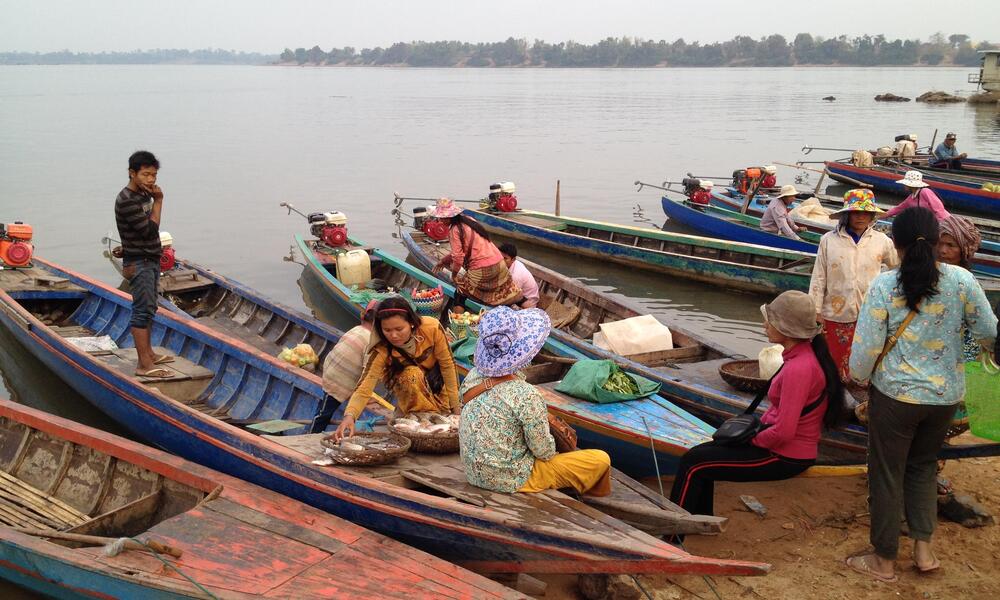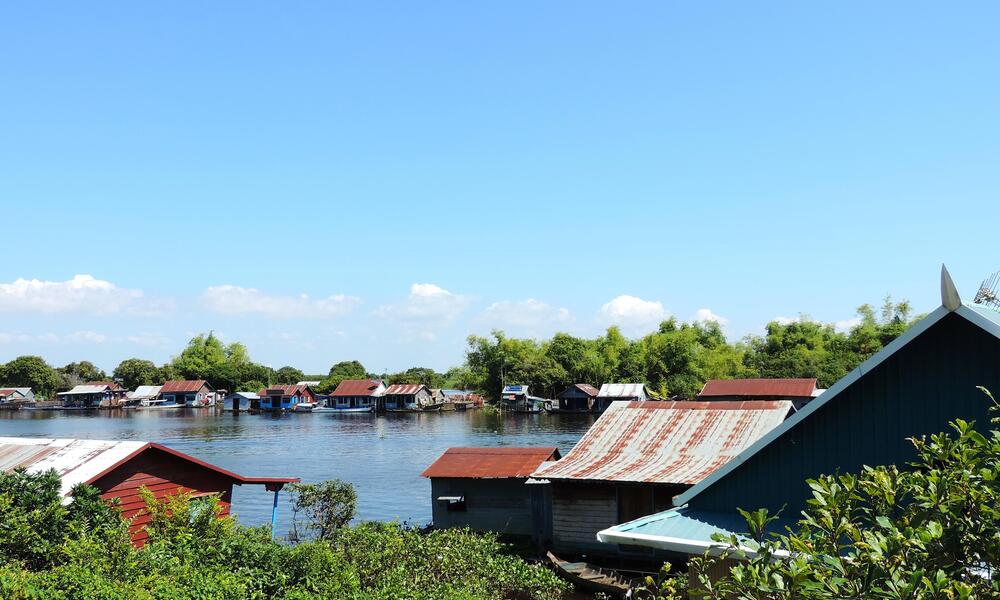Around the globe, we find numerous villages, towns, and cities built along the banks of rivers and lakes—a testament to the critical role freshwater plays in our lives. This precious resource provides drinking water, food, trade opportunities, and transportation navigation. A prime example of this is the Cambodian capital, which is located where three rivers—the Mekong, Tonle Sap, and Tonle Bassac—meet.
My hometown, Battambang, the largest province of Cambodia, is situated along the banks of the Sanke River, where the bustling downtown/provincial center serves as the hub of all activities. My family relocated to this central area after a bombing incident in our village. I have vivid memories of my middle school years when I would wake up early to attend physics tutoring class at 6 a.m. I rode my bike across the river and, on my way, would observe the villagers, fishers, and farmers transporting their fresh catch and produce on their boats to sell at the central market known as "Phsar Nat." Despite growing up in such a place, it never occurred to me how critical the river was to our lives. I took it for granted.
As I rode back home from my morning classes, I would occasionally spot kids joyfully plunging into the river for their afternoon bath and swim. I took my lunch break and a refreshing second bath with water transported from the river in a large container (if it was during the dry season). For lunch, I often had a serving or two of rice accompanied by one stew/soup dish and one grilled or fried dish. Our meals typically featured a fermented fish paste called "Prahok” with “Samlar Machu Pralit,” which is made of catfish and water lily. We use prahok in almost everything, similar to how cheese is used in Western cuisine. I didn’t think beyond the taste of the dish or if I was full—I didn’t think twice and that this fish and water lily came directly from the river, just as the rice was cultivated in the floodplain of the Tonle Sap Lake, which serves as the basin for the Sanke River. I took that for granted, too.
In the early evening, my friends and I would walk over to attend our English class located along the Sengke River. Along the riverbank, there were rows of food vendors selling various delicacies like Nom Pang Pate (baguette with pate and papaya pickles) and Lot Cha (short rice noodles fried with eggs and chives). We would often spot families, friends, and couples sitting and chatting while enjoying their post-school or work meals or snacks, recharging while releasing the day's stress. Some people would go for a walk or jog, while others would fly kites. Groups of boys would play shuttlecock kicking, and some would join the tae kwon do class, while some girls or women would participate in the dance class. All of these activities would happen along the river in the open air every evening. It never occurred to me how the river brought us peace, joy, and a sense of connection. I took it all for granted.

